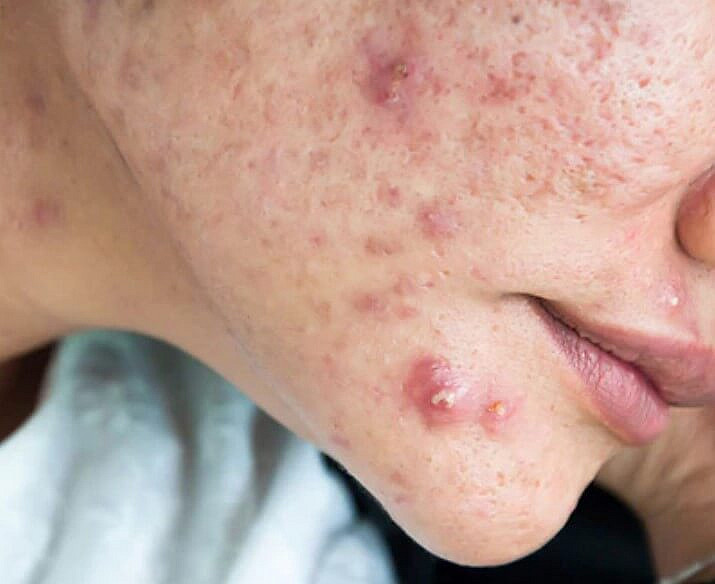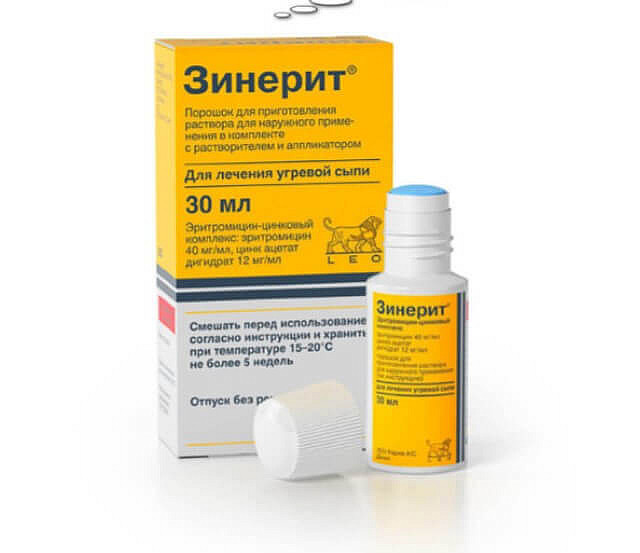Causes and treatment of acne

Causes and treatment of acne
Yes, acne is a common skin disorder that affects people of all ages, although it most often manifests during adolescence. It is important to understand that acne occurs not only due to physiological factors, but also can be associated with hormonal changes, stress, improper nutrition and even certain diseases.
Let's consider the main causes of acne in more detail:

Genetic Predisposition: If your relatives have had acne problems, it is likely that you also have a tendency to this disease.
Hormonal changes: Increased levels of androgens (male sex hormones) in the body can stimulate sebaceous glands, resulting in excess sebum production. This is particularly true for adolescents, menstruating women, pregnant women, and postmenopausal women.
Metabolic disorders: Elevated insulin levels or changes in hormone levels caused by poor nutrition may contribute to acne.
Stress: Psycho-emotional stress can increase cortisol production, which in turn can affect the activity of sebaceous glands.
External factors:
Inappropriate skin care, use of cosmetics containing comedogenic (clogging) ingredients, and a contaminated environment may contribute to acne formation.
Infections: As mentioned, Propionibacterium acnes bacteria play a key role in causing inflammation. They thrive in blocked follicles, triggering inflammation.
Treatment options for acne vary depending on the complexity and severity of the case but include
Topical drugs include creams and gels containing benzoyl peroxide, salicylic acid, retinoids, and antibiotics.
Systemic drugs: Antibiotics taken by mouth, hormones, and isotretinoin for more severe cases
Physical methods: Laser therapy, peels and other dermatological procedures.
Lifestyle change: Healthy diet, stress management and good skin care.
It is important to remember that before starting treatment, you should consult a dermatologist, who will help to determine the individual causes of acne and choose the most effective methods of therapy.
Finally, it is important to mention the development of acute inflammation in response to the intensive activity of pathogens.
Factors that can contribute to acne include
Hormonal imbalances resulting in increased sebum production;
Thickening of the corneal layer of the skin due to aggressive exposure to various substances, retinol deficiency and other causes;
- Problems with the gastrointestinal tract, including improper nutrition with excess carbohydrates and fats;
- Use of low-quality cosmetics;
- Long-term stay in hot and humid climate;
- Taking certain medications, such as corticosteroids, and more
Distinctly, various psychogenic disorders may also be considered predisposing factors. In 2017, researchers published a study that found mood disorders in more than one-third of acne patients.
Principles of Acne Therapy
The approach to acne treatment will depend on its severity. Some patients manage only topical therapy, which involves the use of different agents.
In more severe cases, systemic drugs may be needed. These may include antibacterial drugs, systemic retinoids, hormonal drugs such as oral contraceptives.
Importantly, any medication can only be used after consultation with a doctor.

